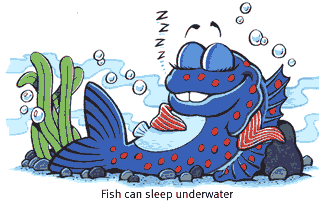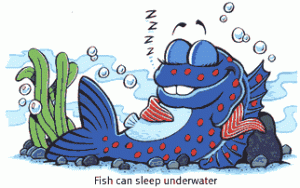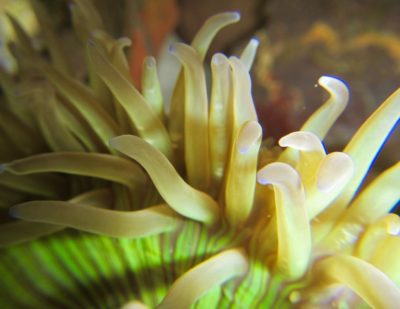
Did you have the chance to go on a night snorkel while you were at CIMI? If so, you may have seen all kinds of fishes actively swimming around – even in those late hours of the night! You may have asked yourself, if they’re moving around with their eyes open during my day snorkel and my night snorkel… when do these animals sleep? Do they sleep at all?!

Credit: The Fisheries Blog
The question of sleep in fish is a complicated one. Generally, we associate sleep in mammals with three distinguishing factors: (1) closed eyes, (2) a circadian, or daily, period of rest, and (3) reduced activity in the neocortex, a special part of the brain that helps with sight and hearing. Fish, however, lack both eyelids and a neocortex! So the question of sleep is more about the fish’s behavior, and whether they exhibit this circadian period of reduced activity and responsiveness to stimuli. For most species of fish, this is the case! Many species like our favorite garibaldi, kelp bass, and blacksmith, rest at the bottom of their habitats at night with no detectable eye movement, lower respiratory rates, and slowed responses to stimuli. You can even see some sleeping in our tanks!
Credit: Phil Watson, shaaark.com

There are exceptions to this, however. Many researchers believe that pelagic species, ones that live in open ocean environments, continually swim in order to maintain ram ventilation of their gills and sustain breathing. These pelagic species include many types of sharks, tunas, bonitos, and mackerels.

What’s more, some shallow water species that do generally sleep may stop sleeping during certain periods of their life, like migrations or while caring for their young! Hey, sound familiar?



